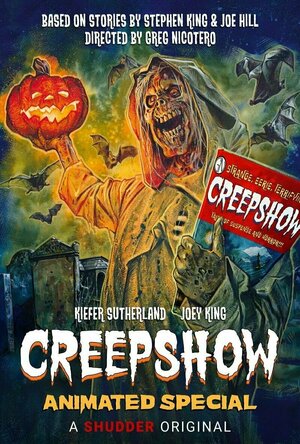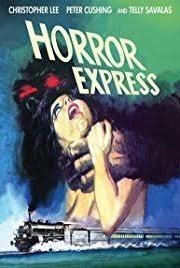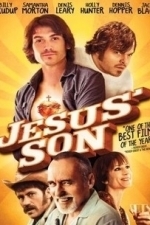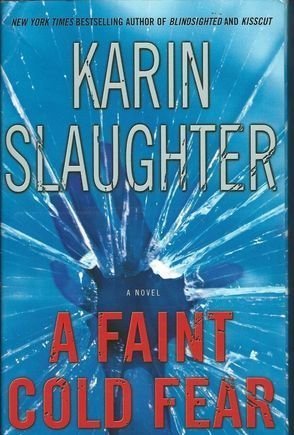
A Clockwork Orange
Anthony Burgess and Andrew Bissell
Book
Fully restored edition of Anthony Burgess' original text of A Clockwork Orange, with a glossary of...
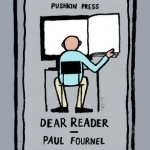
Dear Reader
Paul Fournel, David Bellos and Jean Jullien
Book
Old-school publisher meets e-reader: chaos ensues There's a lot of good to be said about publishing,...

Small Stocks, Big Money: Interviews with Microcap Superstars
Book
Small companies come with big risk, but potentially life-changing reward Small Stocks, Big Money...
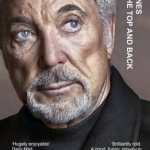
Over the Top and Back: The Autobiography
Book
'For a lot of years, I've answered a lot of questions, but have never told my story before.' Across...
LeftSideCut (3776 KP) rated A Creepshow Animated Special (2020) in Movies
Nov 15, 2020
It consists of two 20-ish minute shorts based on Survivor Type by Stephen King, and Twittering from the Circus of the Dead, by King's son Joe Hill.
The animation used is not much more than a motion comic, but it still manages to be quite striking, and gets the job done. I certainly managed to stay engaged in it.
The stories are exactly the type of material that one would come to expect from Creepshow. Short, sharp, to the point, usually with some sort of underlying message. Like Aesop's Fables but with more entrails.
Survivor Type was my favourite of the two, and focuses on one man's descent into madness when he's washed up on a desert island. Kiefer Sutherland lends his voice talents to this tale, and makes it sound like a proper campfire horror story. It's pretty grim in all honesty, but it's just the right kind of grim for a Halloween Special.
Twittering is the sillier of the two, focusing on a young girl Tweeting her experience of a family getaway. They end up at a circus which proves to be more deadly than originally thought. This one was a little more difficult to get on board with at the beginning. It starts off with a typical "social media is bad" kind of vibe, but when the horror starts, it flips nicely, and ends on an entertaining, and quite horrific note. It's all good stuff!
I've really taken to the Creepshow series, and although this special isn't quite up there with the same level of quality, it's still a fun 45 minute horror trip that's worth a visit.
Matthew Krueger (10051 KP) rated Horror Express (1972) in Movies
Nov 23, 2020
The plot: Alexander Saxton (Christopher Lee), a brilliant British anthropologist researching in the Russian Far East, boards the Trans-Siberian Express with his latest discovery, a frozen specimen he hopes to prove is the missing link. But en route to Europe, passengers begin to turn up dead, and terror engulfs the train as Saxton and his partner, Dr. Wells (Peter Cushing), struggle to contain a mysterious -- and increasingly murderous -- force with the power to control minds.
According to Martin, the film was made because a producer obtained a train set from Nicholas and Alexandra (1971). "He came up with the idea of writing a script just so he would be able to use this prop," said Martin. "Now at that time, Phil was in the habit of buying up loads of short stories to adapt into screenplays, and the story for Horror Express was originally based on a tale written by a little-known American scriptwriter and playwright."
Securing Lee and Cushing was a coup for Gordon, since it lent an atmosphere reminiscent of Hammer Films, many of which starred both of the actors. When Cushing arrived in Madrid to begin work on the picture, however, he was still distraught over the recent death of his wife, and announced to Gordon that he could not do the film. With Gordon desperate over the idea of losing one of his important stars, Lee stepped in and put Cushing at ease simply by talking to his old friend about some of their previous work together. Cushing changed his mind and stayed on.
Its a great movie.
Phillip McSween (751 KP) rated Jesus' Son (1999) in Movies
Jan 9, 2021
Acting: 10
Beginning: 10
Characters: 6
Cinematography/Visuals: 10
Conflict: 2
I could never latch on to what the movie was about or where things were ultimately heading. As a result, there never felt like there was any true conflict that I needed to care about. Most of the scenes felt like they weren’t of much consequence if they had been taken out or left in. This made it really hard to give two craps about the movie as a whole.
Entertainment Value: 6
Memorability: 7
I love the way director Alison Maclean approached the film. The way things are shot in story fashion with flashbacks and rewinds is very creative. While the execution didn’t deliver on the story I was hoping for, I applaud the attempt to be different.
Pace: 6
The movie isn’t overly long, there is just a little more fluff than what is needed. Again, not understanding the concept of what’s happening definitely makes it feel like time is moving slower. A better story would have alleviated this issue.
Plot: 2
Resolution: 4
About the best thing about the ending was that the movie was ending. Didn’t really tie anything up. Didn’t make me any more fulfilled for seeing the movie. No bueno.
Overall: 63
The reason why I enjoy my rating system so much is because you can come up short in some areas and still pass as a quality movie. Too much of a dip in multiple categories and you strike out. Jesus’ Son suffers from weak characters, minor conflict, and little “wow” quality. Not recommended.
Eleanor (1463 KP) rated A Faint Cold Fear (Grant County, #3) in Books
Jul 13, 2019
It got off to a powerful start but soon turned into a bit of a slog. The previous books felt more story driven, while this more focused on the characters which isn't my ideal. Despite the focus the characters didn't seem to develop. Lena I could do without at this point, yes she's been through a lot and she's not coping well but god make the odd good decision at least, just so frustrating.
Jeffery and Sara's constant bickering followed by making up is tedious, why she wants to get back with the guy is lost on me. When Jeffery looses is because Sara is speaking to an old colleague in a hospital while a loved one is in critical condition made me just want to yell run from him he's a controlling, cheating bastard stop going back to him your a strong woman you don't need that. Updates on the critically injured sister just got stupid how many times was it just "she's doing better" without really addressing what was going on with her just seemed odd, we got more detail on how long and much traffic there was on the way to the hospital.
The main plot just never caught on for me and the investigation just lacked any sense of urgency or intrigue.
I'll be continuing with the series hoping this one was a blip and we return to stronger stories.
Jesters_folly (230 KP) rated Start With This in Podcasts
Oct 4, 2019
As the hosts write record and produce ‘Welcome to Nightvale’ as well as other shows they have experience in the subject matter and use that experience in the show. You can also tell that they are used to working together as the show flows well as they talk.
I have only recently found this podcast and only listen to a few episodes but I have found it entertaining and useful. Each episode is only about half an hour long so the listener is not bogged down with too much information and all the assignments seem easy enough (if you choose to do them) but the show doesn’t get tied up with the listener taking part meaning it is ok and useful if you only want to listen to the show. I use Stitcher to listen to podcasts and all the back episodes are still currently available

Biodiversity and Earth History
Jens Boenigk, Sabina Wodniok and Edvard Glucksman
Book
This uniquely interdisciplinary textbook explores the exciting and complex relationship between...
